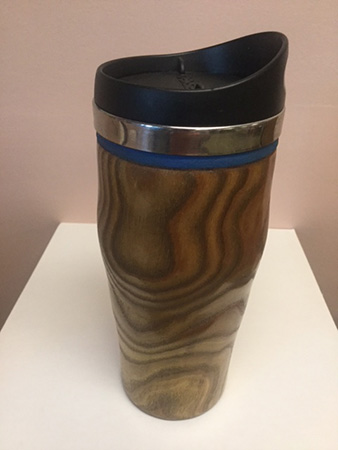
I would like to make a set of wooden coffee cups for a friend. I’m wondering about a finish that would stand up to exposure to hot liquids without imparting any unwanted taste or toxins. Or is there a wood species that would work without a finish? What would you recommend? – Andy Langer
Ernie Conover: Andy, you may not like my answer, but there is no finish that is going to hold up to boiling, or even very hot liquid for very long. What is more, things in the finish (toxic or nontoxic) will leach into the coffee and affect the taste, if not your health. The only way would be to use no finish at all. This brings up a second problem and that is the liquid wicking through the end grain. This would be the bottom if you spindle-turn the cup and the sides if you faceplate turn it. Two woods I would suggest would be white oak, which is ring porous and used for cooperage, or olive wood. I would most recommend the latter. Since wine makers are very particular about the white oak used in their aging barrels, I would imagine your coffee will have an oaky flavor. Same may go for olive. May be a nice change from hazelnuts. You can turn stone also, so consider soapstone or alabaster instead of wood?
Tim Inman: Treenware is what you’re thinking of making. Treenware is the fancy name for wooden utility items. Scoops, dippers, spreaders, and such are good examples of wooden articles which can actually be used. Occasionally, I see wine goblets turned in wood. They are pretty. The lines of the goblet or glass are classical, and they look good when executed in nice woods. BUT, you are wanting to make coffee cups from wood. Not a good choice. The moist heat of the coffee will not only distort and eventually crack the wood, it will also bring out bad or “off” flavors. If you coat the inside of the cup with epoxy or something of that ilk, then you’ve really defeated the purpose of using wood in the first place. Why not make something that is more useful and appropriate from you wood? Unless you’re wanting something purely ornamental, I’d pass the job off to the pottery shop.





